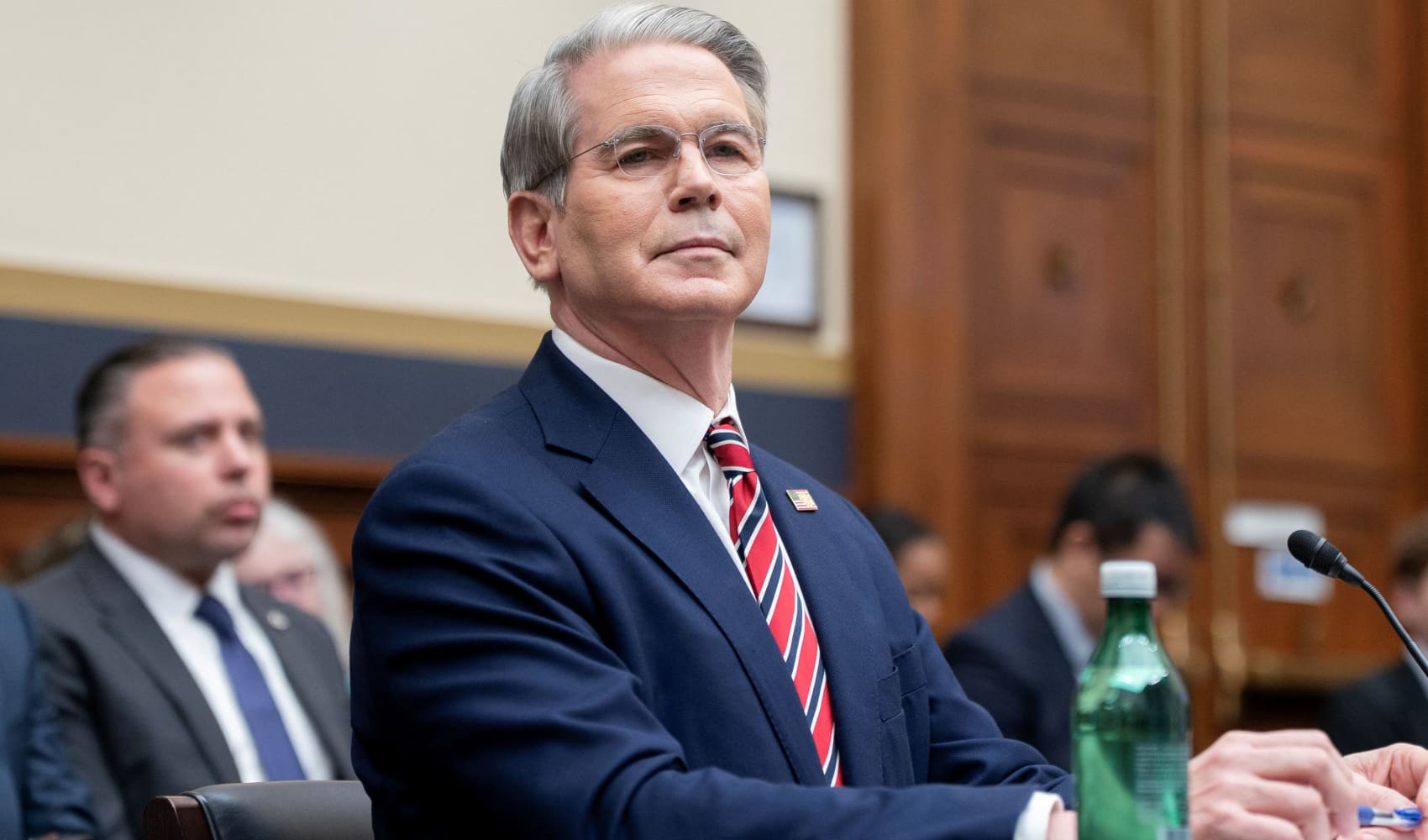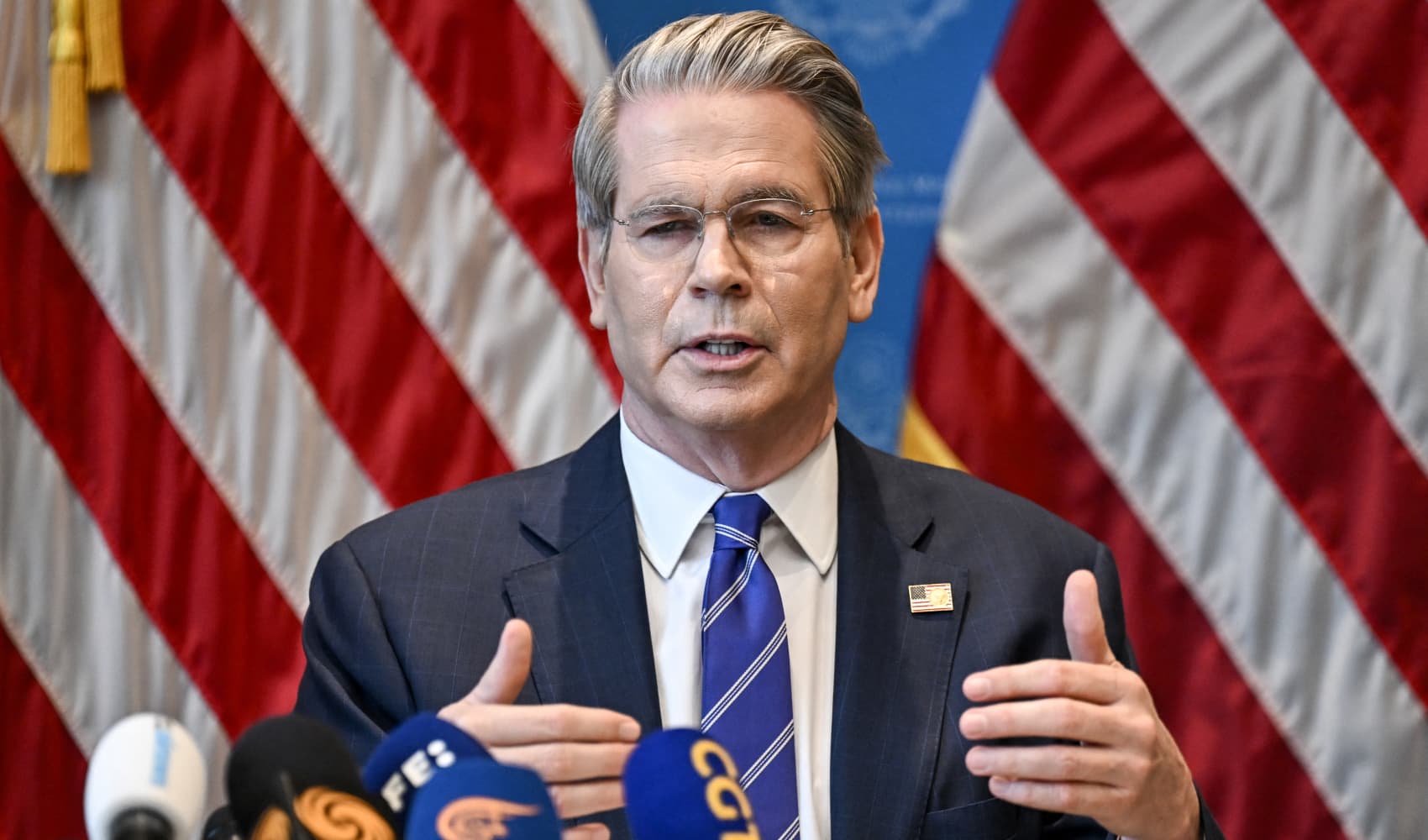US-China Trade Deal Announced: What's Inside?
U.S.-China Trade Truce? White House Teases Deal, Details Await
Introduction: A Trade War Truce? Or Just a Pause?
Did the trade winds finally shift? The White House recently dropped a bombshell – a potential "trade deal" with China. But before we break out the champagne and celebrate the end of economic uncertainty, there's a catch. Details are, well, scarce. Imagine buying a lottery ticket and being told you’ve won, but not knowing how much. That’s the feeling right now. Let's delve into what little we *do* know and what it could mean for you, the global economy, and your investment portfolio.
U.S.-China Trade Talks: Geneva's Silver Lining?
Treasury Secretary Scott Bessent described the U.S.-China trade talks held in Geneva as "productive." Sounds promising, right? But what does "productive" *actually* mean in the context of international trade negotiations? Is it just diplomatic jargon for "we didn't walk out of the room," or is there genuine progress being made? Only time will tell.
Trump's Involvement: The President's Perspective
Bessent reassured the public that President Donald Trump is "fully informed" about the discussions. This is crucial because, ultimately, any agreement hinges on the President's approval. His perspective, often unpredictable, holds immense sway over the future of U.S.-China trade relations. Remember that tweet from April? The one that kicked off this whole tariff saga? It's a reminder of the power he wields.
The Announcement: A Deal, But What Kind of Deal?
The White House on Sunday announced a "trade deal" with China without providing specifics, after Trump administration officials spent the weekend negotiating with their Chinese counterparts. It’s like announcing you've baked a cake, but refusing to say what flavor it is, how big it is, or even if it's edible. The ambiguity leaves everyone guessing and sets the stage for potential disappointment if expectations aren't met.
Global Economy Relief: A Potential Boost
Any de-escalation in the ongoing trade war could bring much-needed relief to a global economy that has been roiled since President Donald Trump's April tariff announcement. Imagine a garden hose that's been pinched shut; releasing the pressure could allow economic activity to flow more freely.
Scott Bessent's Role: The Messenger of Optimism?
Treasury Secretary Scott Bessent said Sunday that the trade talks that took place in Geneva over the weekend were "productive." He's the bearer of good news (or potentially good news). We need to wait for his full briefing. Until Monday morning’s full briefing, we're left with more questions than answers.
Uncertainty Lingers: What We Don't Know
Let's be honest, the lack of detail is concerning. What concessions were made by each side? What specific tariffs are being rolled back, if any? What enforcement mechanisms are in place to ensure compliance? These are all critical questions that need to be addressed before we can truly assess the impact of this so-called "deal."
Tariffs: The Elephant in the Room
The key question is: What happens to the existing tariffs? Are they being reduced, eliminated, or simply left in place? The fate of these tariffs will largely determine the extent to which this agreement can actually boost the global economy.
Impact on U.S. Businesses: Winners and Losers?
Depending on the specifics of the deal, certain U.S. businesses could benefit significantly, while others might be left out in the cold. Sectors like agriculture, manufacturing, and technology could see a major shift in their competitive landscape. Are farmers going to see an increase in orders? Will manufacturing costs decline? These are crucial points to consider.
Impact on Chinese Businesses: A New Era of Trade?
Similarly, Chinese businesses will be affected by the agreement. Will they gain greater access to the U.S. market? Will they be subject to stricter regulations? The answers to these questions will shape the future of the Chinese economy.
The Stock Market Reaction: A Sign of Confidence?
The stock market is likely to react to the news, but the extent of the reaction will depend on the details that emerge on Monday. A comprehensive and favorable deal could trigger a rally, while a vague or underwhelming agreement could lead to disappointment.
Geopolitical Implications: Beyond Trade
This trade deal has implications that extend beyond economics. It could signal a broader shift in U.S.-China relations, potentially leading to greater cooperation on other global issues. Or, it could be a temporary truce in a long-term strategic rivalry. Only time will tell if this a move to re-establish relations or just a step back from the brink of trade war.
The Waiting Game: Anticipation Builds
For now, we're left in a state of suspense, eagerly awaiting Treasury Secretary Bessent's full briefing. The next few hours will be critical in determining the true nature and significance of this U.S.-China trade agreement.
Monday Morning Briefing: The Moment of Truth
Mark your calendars! Monday morning's briefing is the moment of truth. This is where we'll finally get the details we need to understand the full implications of this "trade deal." Will it be a game-changer or just a fleeting moment of optimism?
A Cautious Optimism: Hope for the Best, Prepare for the Worst
It's important to approach this announcement with cautious optimism. While a de-escalation in the trade war is certainly welcome, it's crucial to remember that trade negotiations are complex and often unpredictable. Hope for the best, but be prepared for the possibility that the details might not live up to the hype. After all, the world is more complex than ever.
Conclusion: Key Takeaways and What to Watch For
So, what have we learned? The White House announced a U.S.-China trade deal, but details are scarce. Treasury Secretary Scott Bessent called the Geneva talks "productive," and President Trump is reportedly "fully informed." The global economy could benefit from de-escalation, but uncertainty lingers. We're all waiting for Monday morning's briefing for the full picture. Keep a close eye on the specifics of tariff reductions, enforcement mechanisms, and the overall impact on U.S. and Chinese businesses. Only then can we truly assess the significance of this potential trade truce.
Frequently Asked Questions (FAQ)
Here are some frequently asked questions about the U.S.-China trade deal announcement:
-
Q: What specific tariffs are being addressed in this deal?
A: Details about specific tariffs haven't been released yet. We need to wait for the Treasury Secretary's full briefing to understand which tariffs are being reduced, eliminated, or left in place.
-
Q: How will this trade deal affect the U.S. stock market?
A: The market's reaction will depend on the specifics of the deal. A comprehensive and favorable agreement could lead to a rally, while a vague or underwhelming agreement could lead to disappointment.
-
Q: What enforcement mechanisms are in place to ensure both countries comply with the agreement?
A: The enforcement mechanisms are currently unclear. The full briefing will provide further details on how the agreement will be enforced and what consequences will be in place for non-compliance.
-
Q: Which U.S. industries are most likely to benefit from this trade deal?
A: Industries like agriculture, manufacturing, and technology could potentially benefit, but the actual impact will depend on the specifics of the agreement and how it addresses existing trade barriers.
-
Q: Is this trade deal a sign of improved overall relations between the U.S. and China, or just a temporary fix to the trade war?
A: It's too early to say for sure. It could be a sign of improved relations, but it could also be a temporary truce in a long-term strategic rivalry. The future will depend on how both countries implement and uphold the agreement.

